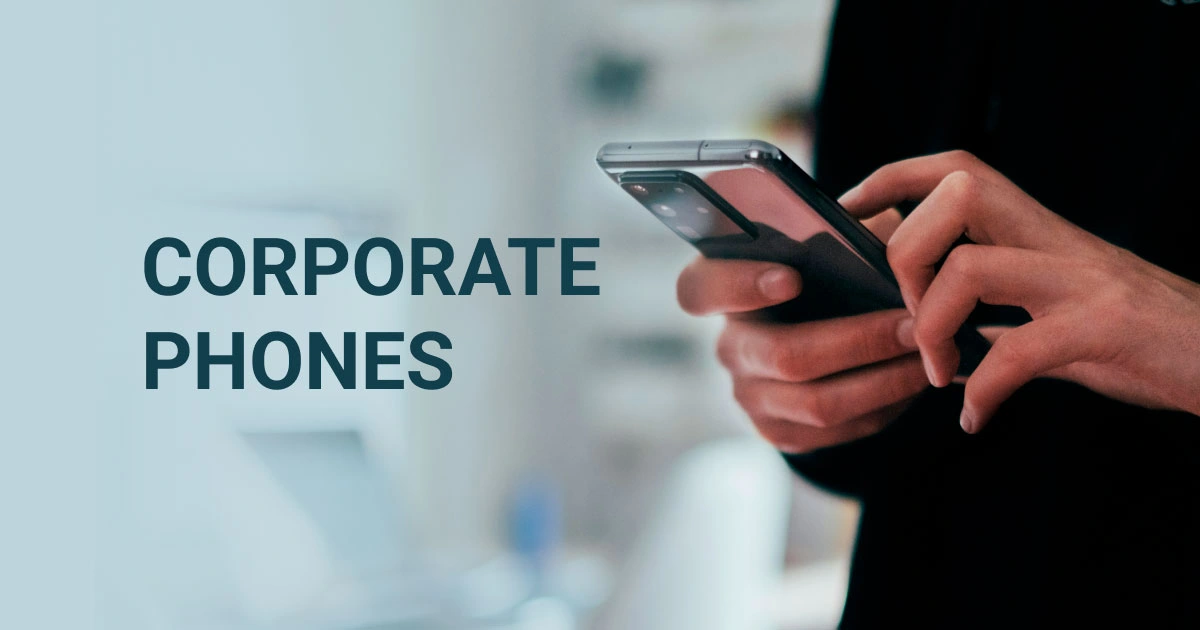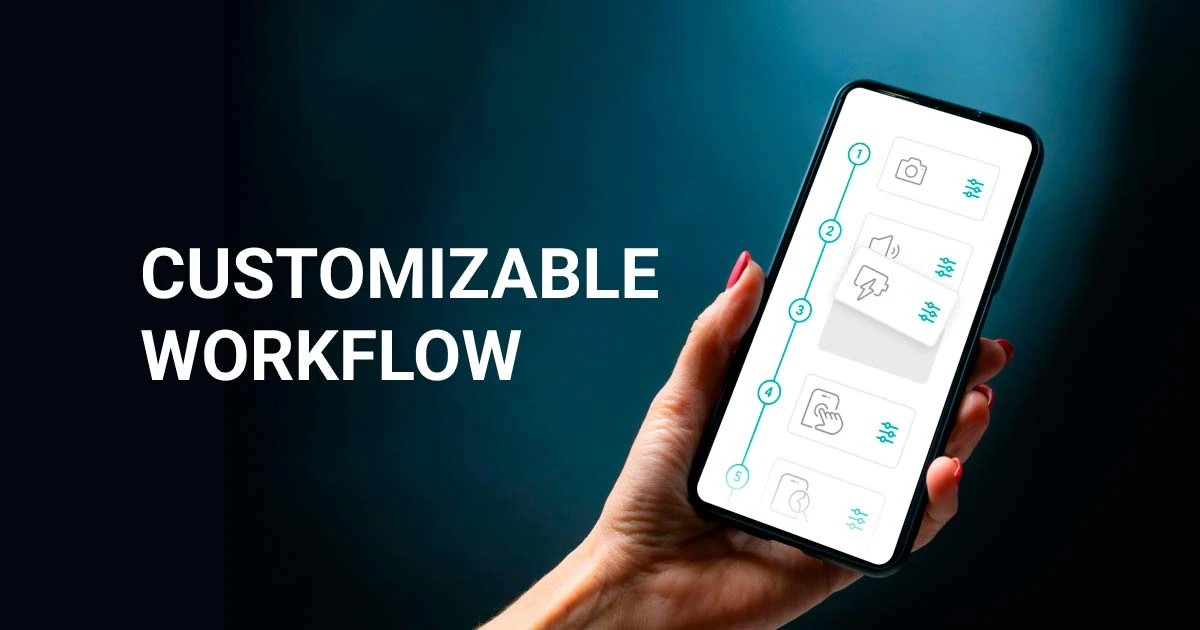When selecting electronics for corporate use, businesses prioritize features that differ significantly from those valued in personal smartphones. In this article, we delve into the key specifications that make a smartphone suitable for business needs and present our top picks for the best corporate smartphones of 2024. Additionally, we examine the processes involved in managing used corporate electronics within our industry and provide practical advice for optimizing their handling. Read on!
Corporate Smartphones: Definition and Key Characteristics
Corporate devices are the electronics employees use for work purposes. Even small businesses should manage such devices carefully by implementing industry-standard ITAM practices. Proper management ensures the most efficient use of resources and provides both economic and environmental benefits.
When companies choose business phones, they typically look for the following features:
- Durability: While all users desire long-lasting electronics, corporate devices are subject to more intense use, often resulting in shorter lifespans. For this reason, businesses tend to choose the most reliable phone models.
- Affordability: Businesses aim to avoid overspending on overpriced electronics, opting for mid-range devices that balance quality and cost-effectiveness.
- Security and Data Protection: Corporate smartphones often handle sensitive business information, necessitating enhanced security measures to protect against data breaches.
- Support for Necessary Apps and Functions: Depending on the company's requirements, corporate electronics should support specific functions such as extended data storage, advanced data processing, or proprietary applications.
- Compatibility with Essential Accessories: In addition to software compatibility, corporate devices must integrate seamlessly with required hardware, such as microphones and cameras.
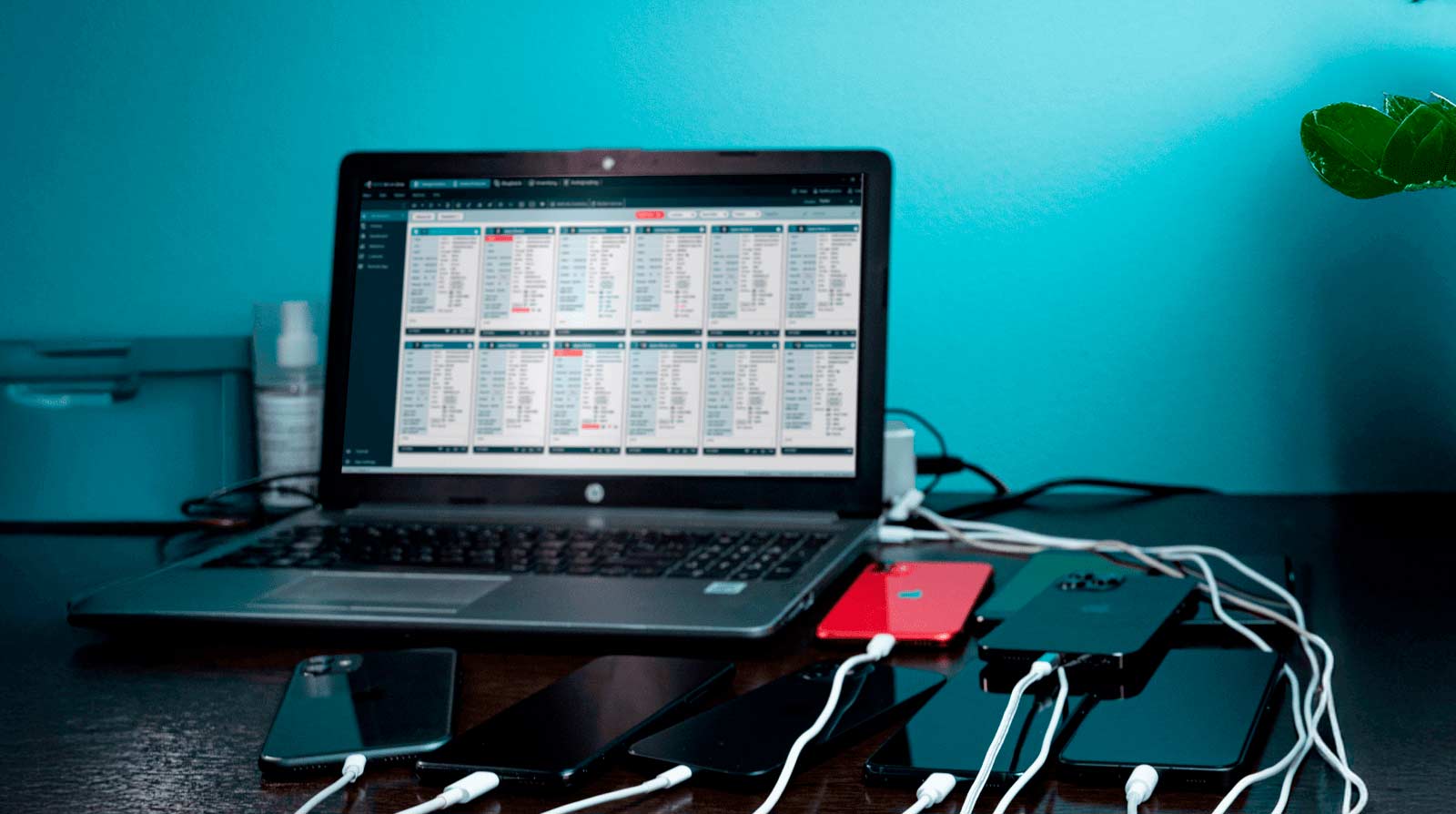
Corporate Smartphones: Statistics
According to research conducted by Samsung, 15% of U.S. companies provide corporate devices to all their employees. Meanwhile, 39% of companies do not provide corporate devices, requiring their employees to use personal devices for work. However, the majority of companies—46% of American SMEs—adopt a hybrid approach, providing corporate devices to some employees.
The practice of using personal phones for corporate purposes is often referred to as the BYOD (Bring Your Own Device) concept. It gained significant popularity during the COVID-19 pandemic. According to Zippia, BYOD adoption increased by 58.3% between 2019 and the present.
Although convenient and cost-effective for businesses, BYOD poses significant security risks. For instance, 37.9% of employees using personal devices for work report that their employers have not implemented any security measures or policies.
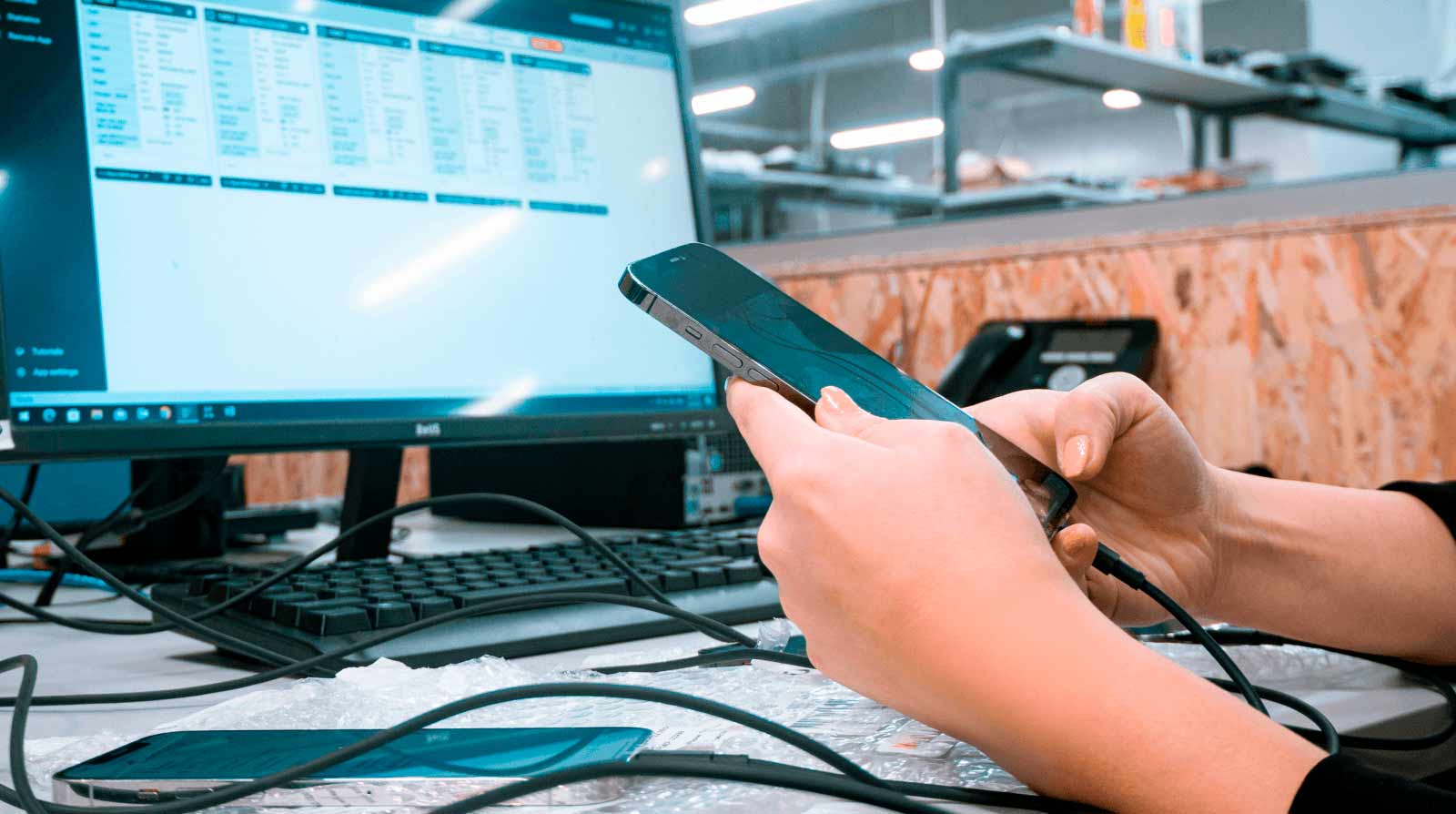
Best Business Smartphones 2024
There is no single best phone model that fits the needs of every business. However, several reliable and affordable smartphones on the market have demonstrated their efficiency and high quality. Below are some options that could be beneficial for your business:
iPhone 12
Apple phones have consistently proven their reliability over the years. However, the latest models are expensive, and their functionality may exceed business needs. Therefore, the iPhone 12 is a reliable option that ensures a high-quality user experience, with Apple-exclusive features.
Samsung Galaxy S22
The Galaxy series of Android-based smartphones from Samsung is globally popular. Like Apple devices, Samsung's flagship phones are too expensive for most businesses. The Samsung Galaxy S22 strikes the perfect balance between price and quality, with an improved battery and a powerful chip that ensure great performance.
Samsung Galaxy A53
This model is more affordable but less advanced than the S22. Nonetheless, the Samsung Galaxy A53 is ideal for business use when complex features are not necessary.
Google Pixel 7
Released in 2022, this device remains a solid choice for those seeking durability and quality. Additionally, Google's smartphones feature advanced speech recognition thanks to their Tensor G2 chips—a must-have for business calls.
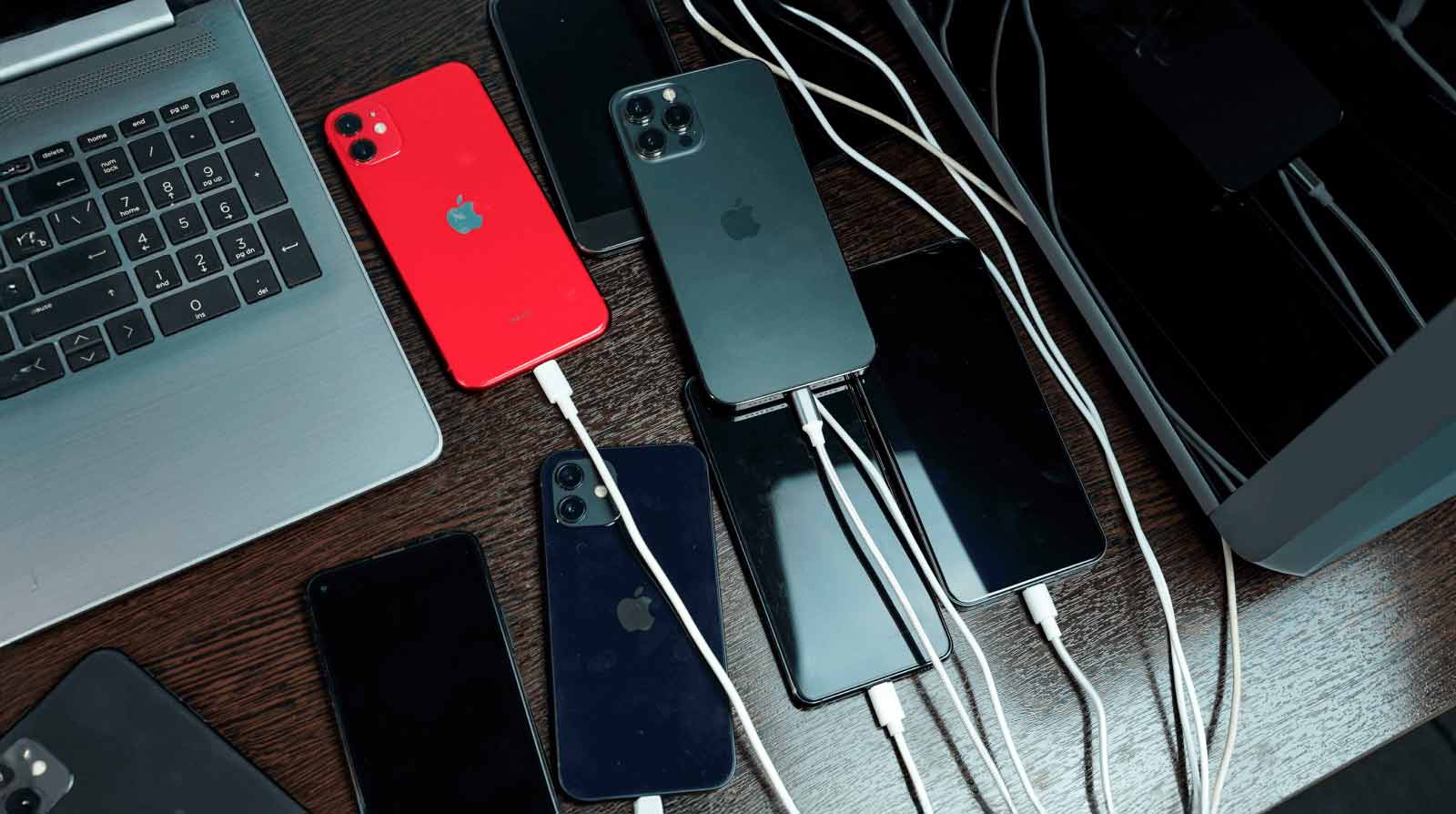
The Lifecycle of Business Phones
Corporate devices are used far more intensively than personal electronics, leading to faster wear and tear. However, according to Statista, enterprises retain their corporate devices longer than individual users. As a result, businesses experience reduced device performance, leading to workflow disruptions.
Businesses can mitigate this issue by managing corporate electronic assets responsibly and effectively. Consider implementing the following practices:
- Regularly check the condition of business phones, including their compliance with data safety regulations. All corporate devices must have secure passwords, antivirus software, remote data wipe functionality, and other essential security measures.
- Regularly update operational software and applications, as updates often introduce advanced security features and bug fixes. These improvements can extend the device's lifespan and enhance energy efficiency.
- Provide employees with training on proper device usage. It is essential to train employees on managing corporate devices, such as avoiding overnight charging, using official chargers, and preventing overheating.
What happens to business phones when they are no longer suitable for work purposes? At that point, companies typically resell these devices to industry players such as recyclers, repairers, or refurbishers, depending on the device's condition.
Recycling
If smartphones or their components can no longer be used, recycling is the only responsible disposal option. To prevent data theft, recyclers must permanently and irreversibly wipe all data from devices. The most effective method is to use certified software, such as NSYS Data Erasure. This solution complies with international standards and guidelines, including NIST and ADISA.
However, recycling is the final stage of a device's lifecycle and should only be performed when reuse is no longer possible. Corporate phones are often repairable and reusable.
Repair and Refurbishment
Businesses typically resell pre-owned corporate electronics to repairers and refurbishers, extending the device's lifecycle and maximizing its value. During the repair process, devices must undergo thorough testing, including diagnostics of both functional and cosmetic conditions.
NSYS Diagnostics is an advanced testing solution capable of performing over 60 tests to identify more than 100 defects. It verifies the IMEI to determine if a smartphone has been lost, stolen, or has an outstanding financial balance. Additionally, NSYS Diagnostics tests the authenticity and functionality of device components and securely wipes data in compliance with international standards.
NSYS Diagnostics ensures that company data access is excluded, offering a secure, rapid, and certified solution for all your device testing needs.
Enhance the efficiency of your used device business with NSYS Diagnostics!


